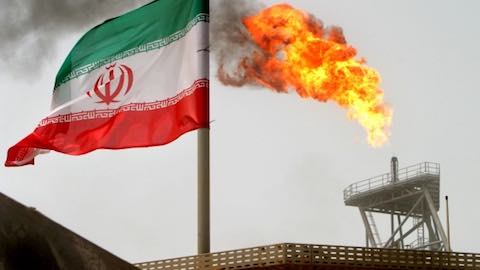- MENU
- HOME
- SEARCH
- WORLD
- MAIN
- AFRICA
- ASIA
- BALKANS
- EUROPE
- LATIN AMERICA
- MIDDLE EAST
- United Kingdom
- United States
- Argentina
- Australia
- Austria
- Benelux
- Brazil
- Canada
- China
- France
- Germany
- Greece
- Hungary
- India
- Indonesia
- Ireland
- Israel
- Italy
- Japan
- Korea
- Mexico
- New Zealand
- Pakistan
- Philippines
- Poland
- Russia
- South Africa
- Spain
- Taiwan
- Turkey
- USA
- BUSINESS
- WEALTH
- STOCKS
- TECH
- HEALTH
- LIFESTYLE
- ENTERTAINMENT
- SPORTS
- RSS
- iHaveNet.com: Energy, Oil & Gas
Agriculture | Airline | Auto | Beverage | Biotech | Book | Broadcast | Cable | Chemical | Clothing | Construction | Defense | Durable | Engineering | Electronics | Firearms | Food | Gaming | Healthcare | Hospitality | Leisure | Logistics | Metals | Mining | Movie | Music | Newspaper | Nondurable | Oil & Gas | Packaging | Pharmaceutic | Plastics | Real Estate | Retail | Shipping | Sports | Steelmaking | Textiles | Tobacco | Transportation | Travel | Utilities
3M (MMM) | AT&T (T) | AIG (AIG) | Alcoa (AA) | Altria (MO) | American Express (AXP) | Apple (AAPL) | Bank of America (BAC) | Boeing (BA) | Caterpillar (CAT) | Chevron (CVX) | Cisco (CSCO) | Citigroup (C) | Coca Cola (KO) | Dell (DELL) | DuPont (DD) | Eastman Kodak (EK) | ExxonMobil (XOM) | FedEx (FDX) | General Electric (GE) | General Motors (GM) | Google (GOOG) | Hewlett-Packard (HPQ) | Home Depot (HD) | Honeywell (HON) | IBM (IBM) | Intel (INTC) | Int'l Paper (IP) | JP Morgan Chase (JPM) | J & J (JNJ) | McDonalds (MCD) | Merck (MRK) | Microsoft (MSFT) | P & G (PG) | United Tech (UTX) | Wal-Mart (WMT) | Walt Disney (DIS)
-
Energy companies have spent the last couple of years fighting off added government regulation, saying red tape is slowing development.
-
Dutch carrier KLM is set to begin using used cooking oil for some of its flights. The announcement comes less than two years after the airline flew the first biokerosene-fueled passenger flight in Europe
-
If you think paying $4 for a gallon of gas is ridiculous and long for the days when gas cost a quarter, consider this: 93 years ago you could pay just 25 cents and drive away in your Oldsmobile or Studebaker with a gallon of gas. However ...
-
Some in Congress -- mostly Democrats, but a few Republicans -- are calling for an end to tax breaks enjoyed by the oil companies and in some cases, higher taxes on their profits. But the Obama administration is contributing to higher energy prices, which inflate the companies' bottom line. Here's how
-
President Barack Obama's recent address on the fuel situation gave hope to advocates of electric cars, natural gas and, as we told you last week, propane. But it offered little solace to those in America's heartland who are the biggest promoters of ethanol
-
The global energy picture has become more complicated in 2011, but investors are making some sense of it. The nuclear outage in Japan and turbulence in oil-producing nations is prompting increased demand for alternative electricity sources such as natural gas and coal, though both carry some environmental concerns
-
While there are solid prospects for stocks of engineering and construction firms, they won't come from efforts to rebuild a devastated Japan. The primary drivers will be high oil prices, general economic revival and U.S. government spending programs. Oil prices are important because international and national oil companies are the top customers for engineering and construction services
-
Do you know exactly what you're paying for when you fill up? Not all of your hard-earned dollars end up in the coffers of big gasoline tycoons or Middle Eastern despots. The list of players is long, so we talked to the experts to find out where your money goes when you cash out at the pump
-
Today individuals can invest in commodities through an increasing number of ETFs and mutual funds that employ sophisticated strategies. But before jumping into this sector, experts say it's important for investors to understand some of the peculiarities in the commodities market. One of the most problematic is a phenomenon called contango. Here's what you need to know
-
In an effort to ensure U.S. industries remain competitive in the global market, our tax system offers limited protections for American companies, including energy firms, from the perils of double taxation. Though many anti-oil activists (and their allies in the current administration) attempt to diminish these vital tools when it comes to our fossil fuel industry, the facts point to the contrary.
-
Texas oil and finance magnate T. Boone Pickens has done the math on America's energy future and it doesn't work. Oil dependency is America's ticking time bomb. He says we need to think about wind, solar, nuclear, 'anything American,' but particularly natural gas
-
At first glance, the new ethanol rules drafted by the Environmental Protection Agency (EPA) might seem to be a bold step toward increasing consumers' use of this renewable fuel. But a deeper look shows that, while the new regulations appear to favor increased use of the biofuel, the finer points of the rules will likely mean little expansion of ethanol use
-
If you're about to buy a new electric or plug-in hybrid vehicle, you should think seriously about where you're going to plug it in. Though many of the upcoming cars will plug into standard 110-volt sockets, you're liable to find the recharging time agonizingly slow.
-
Nuclear fuel is available in the United States and is virtually unlimited. We don't have to drill for it. We don't have to mine it nearly as much as we do for coal. And thanks to technology, we can safely recycle 'nuclear waste' and turn most of it into more fuel
-
If nuclear energy is a bad investment for Wall Street, then is it a good investment for taxpayers? Even high-fliers on Wall Street fear investing in nuclear projects. Nuclear power's proponents say that the industry has solved the problems that caused it to collapse in the 1970s, and that we are at the dawn of a nuclear renaissance. But the industry still suffers from those same problems
-
The oil and gas industry has contributed more than $7.5 million to members of the 111th Congress thus far in the 2010 election cycle. That makes the industry the 15th most generous out of 80 tracked by the Center for Responsive Politics, a nonpartisan research group which compiles campaign finance data.
-
'Cozy relationship' is one of those phrases Washington loves. During the financial crisis, there were allegations of cozy relationships between bankers and the government regulators who were supposed to be policing them. It's a similar story with the oil companies. There has been a cozy relationship between the oil companies and the federal agency that permits them to drill
-
Global crude oil prices hit an 18-month high as the average price of a gallon of regular gasoline reached $2.85, the highest it's been since October 2008. This is both good news and bad news. The bad news is that the economic recovery could slow if gas prices rise too fast. The good news, though, is that the United States is almost certainly not headed toward another summer of $4-a-gallon gas
-
With the costs of oil and coal rising, the United States needs to wean itself off fossil fuels. The task might seem quixotic, but it actually will not require miracles
-
Obama says 'Drill baby, drill' is a bumper sticker, not an energy strategy
-
The ongoing bonanza in the U.S. hydraulic fracturing industry marks a dangerous misstep on the road to U.S. energy independence
-
American oil giant ExxonMobil and Russian oil firm Rosneft inked an agreement to jointly search for black gold in the Arctic Sea shelf and Black Sea
-
After years of staggering growth, the clean-energy industry is headed for a crisis. In most of the Western countries leading the industry, the public subsidies that have propelled it to 25 percent annual growth rates in recent years have now become politically unsustainable
-
You've probably noticed at the pump: The price of oil is rising again. Experts have ratcheted up their growth projections for the new year, which typically means they expect the price of gas to move higher as well. When it comes to investing in oil these are your options
-
Good news about energy is rare. So the world should take notice of the recent dramatic increase in natural gas, perhaps the greatest shift in energy-reserve estimates in the last half century. This development is an unmitigated boon for affordable energy, energy sources that emit less carbon dioxide, and governments that hope to reduce the political power of major oil- and gas-producing countries
-
'Never mind.' That, in a nutshell, is the White House's new position on domestic oil exploration. In March, President Obama announced that he would allow -- or at least entertain -- some new oil development off the Atlantic Coast and in the eastern Gulf of Mexico. This week he reversed himself, saying such exploration is now off the table for at least five years
-
The world faces a daunting array of energy challenges. Oil remains indispensable to the global economy, but it is increasingly produced in places that present big commercial, environmental, and geopolitical risks; greenhouse gases continue to accumulate in the atmosphere; and the odds that the world will face catastrophic climate change are increasing
-
Hybrids, electrics and other alternative vehicles are dominating automotive news these days. And you might think the gasoline engine is headed down the path of the passenger pigeon. But that impression is very wrong. Frankly, there's both positive and negative news on electric car sales
-
Globally, propane is the most widely used 'alternative' car fuel -- and for good reason. Propane fuel is abundant, relatively inexpensive and sourced in North America. It also burns clean. However, these arguments have largely fallen on deaf ears as govenrment officials seem intent on vehicle electrification at the expense of other technologies. Many auto experts believe this is a shame
-
It's easy to see inaction. In the Senate, everything crawls. At the climate change talks in Copenhagen, the outcome was disappointing. For those who wanted bold action on energy, the past year has left much to the imagination. But things are changing, incrementally.
-
The world must face a glaring fact: Demand for energy is growing, and countries need to expand their energy sources if they want to keep up. The Obama administration made a commitment to clean energy. But here's a source-by-source look at nine types of energy that could change the landscape in the United States.
-
The United States, as pretty much anyone will tell you, is racing China to develop clean energy technologies -- the wind turbines and solar panels and advanced batteries and energy storage devices of the future -- and there are a lot of people who are worried that the country is lagging, even losing, when it comes to innovation.
-
The Rockefellers are preparing a resolution to present to shareholders at the Exxon's annual meeting. The proposal would require Exxon to disclose the risks it faces if demand for oil declines in coming years as the world turns to other sources of fuel. In other words, is Exxon worried about the future of oil and whether it's taking the risk of climate change seriously.
-
Biofuels are a conundrum. Their potential advantages are undeniable: reduction of greenhouse gas emissions, lessening of our dependency on imported oil, support of domestic agriculture. And they certainly have their supporters. The Obama administration repeatedly affirmed its backing of rapid development of alternative energy sources, including biofuels. Still, the hurdles are high.
-
Obama's off-shore oil drilling decision has multiple motivations. On one level, he is acknowledging that the United States requires oil for transportation and will continue to for some time. But there is a political dimension, too. Obama wants to pass a major climate and energy bill soon, and a bipartisan group of senators is expected to unveil one later this month
-
A new study from a key energy coalition finds that poorer Americans are spending a huge amount of their income on energy, a finding the group hopes will spark renewed attention on Capitol Hill to energy reform and legislation.
© iHaveNet.com
HOME | WORLD | USA | BUSINESS | WEALTH | STOCKS | TECH | HEALTH | LIFESTYLE | ENTERTAINMENT | SPORTS
Energy: Oil, Gas & Alternative Energy Industry
Find out what is happening in the Energy: Oil, Gas & Alternative Energy Industry.
Your Single Source to Energy: Oil, Gas & Alternative Energy Industry Current Events
Your Single Source to Energy: Oil, Gas & Alternative Energy Industry Current Events
RSS Feeds | Shopping | Email Alerts | Site Map | Privacy




